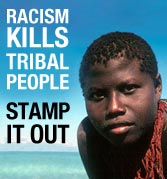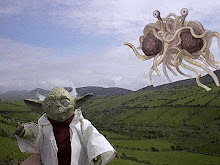From BBC, London- 19 April 2012
Three young Englishmen have been given lengthy prison sentences for a shooting incident in a London, England shop which left a five-year-old girl paralyzed. The little girl, Thusha Kamaleswaran, was shot in the chest and a man, Roshan Selvakumar, 35, was shot in the face at a Brixton shop last March.
The gunmen, all 19 and 20 years old, Nathaniel Grant, Kazeem Kolawole and Anthony McCalla were convicted of causing both victims grievous bodily harm with intent and attempted murder of a rival gang member. Grant was told he would serve at least 17 years before becoming eligible for parole, while Kolawole and McCalla will serve at least 14 years.
Judge Martin Stephens said the crimes were "of the utmost gravity", adding: "Not one of you has, in my judgment, shown a sliver of remorse." Last month's trial yielded testimony that "the three cycled up to Stockwell Food and Wine and Mr. Grant opened fire". One wild shot resulted in a bullet hitting little Thusha in the chest. That bullet passed through the seventh vertebra of her spine, damaging her spinal cord and leaving her paralyzed.
The court heard testimony that the gunmen were trying to kill Roshaun Bryan, a rival gang member, but instead shot Thusha and Mr. Selvakumar, who were innocent bystander-victims, during the attempted murder. Prosecutor Edward Brown told jurors: "The reality of this shooting may be that, whilst there was an intention to kill the suspected rival gang member, the gunman and his accomplices couldn't have cared less if someone else was shot too."
Detective Superintendent Gordon Allison said the only time the men had apologised or shown any sign of remorse was when they were seeking to reduce their prison sentences. He added: "The CCTV images of little Thusha dancing happily in Stockwell Food and Wine are images that many of us will struggle to erase from our memories".
"... McCalla, Kolawole and Grant will have many years in prison to reflect on the damage they caused to an innocent five-year-old girl and her family but also Roshan and the community that is London as a whole."
A team of detectives who investigated the case are leading attempts to raise money for the vital care and equipment Thusha now requires. Her injuries have not only ruined her dreams of becoming a dancer, but have imposed a serious long-term financial burden upon her family.
Judge Stephens said the trio posed "a significant risk to members of the public of serious harm in the future". It is Judge Stephens' summation which caught my eye. It is a simple, yet profound, statement of the rationale which explains the reason society needs to be relentless in finding and punishing this type of offender:
"Shooting into a shop, a confined space where it was known there were people present, is an attack on society itself by men who saw themselves as outside the law and above the law."
Read more on this crime at BBC.
It is nothing less than an attack on society in general, an act which adds more weight to the load which can overwhelm and crush a society, destroying the quality of life for all. Here in the US we have some areas in several of our cities where the level of violence, usually gang-related, is high and as a result people who don't have to be there, avoid those places while those who can't avoid the area simply try to stay out of sight.
Usually the violence is by gang-members and is directed against other gang-members. The greater problem for the society, though, is the collateral damage caused by the violence. Drive-by shooting, which is rarely very accurate, often results in injury or even the death of people who weren't the intended target. It's the callous disregard for the lives of others which does the damage. Along with that lack of regard comes mugging and robbery, housebreaking for burglary and home invasions.
In trying to think of a good example for a worst case scenario not directly attributable to foreign invasion or to politically motivated civil war, Ciudad Juarez, Mexico comes to mind. A large city which is being devastated due to having been chosen as the venue for a murderous turf-war between drug runners. Mass executions of groups of rivals, bribery or murder of public officials and gun-battles in the streets is not the kind of environment the people of the city want, it just descended upon them and there doesn't seem to be any power that can effectively combat the reign of terror.
According to Wikipedia, an article in The Guardian
in September 2010 says of Ciudad Juárez – because of the violence "About 10,670 businesses –
40% of the total – have shut. A study by the city's university found
that 116,000 houses have been abandoned and 230,000 people have left."
It's not just because "drug dealer a" killed "drug dealer b". I'm sure that "drug dealer b" was important to someone besides himself, but that's not why the people are leaving. They're leaving because "drug dealer a" shot up a crowd at the cinema where "drug dealer b" was picking up his little drug-dealers from the Saturday matinee and purchased (at gun-point) several city police officers who had come to arrest him.
When it reaches the point where the criminals are more numerous, better armed and much better funded than are the forces of law and order finding a workable solution to the problem becomes difficult at best. Between October 2010 and February 2012, 64 Juarez police officers have been murdered and the federal government has brought hundreds of federal police and 7500 soldiers to the city in an attempt to assert government control.
One of the city’s more grisly murders took place on December 20, 2011,
when Officer Jose Everardo Sanchez, who had been kidnapped the previous night, was thrown into the street from
of a vehicle with his hands and feet tied. His killers then doused
him with a flammable liquid and set his body ablaze.
The gruesome scene took place at 8:30 a.m. in full view of many
horrified witnesses who saw the officer writhe in pain until succumbing
to his wounds.
Besides the police officers and drug cartel members killed, over 4000 young women have been murdered in the past four years and almost none of those killings have been solved by police. It would be easy to say that the Chihuahua Police, Juarez Police and federal police are incompetent or corrupt, but that isn't the reality of the situation. Of course there are stupid and/or corrupt officers - it happens everywhere - but that's not true of the vast majority.
What is true is that there are cartels - gangs - of exceptionally vicious and cold-bloodedly murderous men and women who are making money in unimaginably vast quantities making and distributing illegal drugs. Those people intend to keep doing business and they employ hundreds, if not thousands, of agents with cell-phones who act as lookouts in their cities and towns to warn the gang of police presence. They also employ hundreds, if not thousands, of cold-blooded murderers who are armed with the best hardware money can buy who act as bodyguards and shock troops.
The killers and their employers are, because of their firepower and their willingness to use it, nearly impervious to arrest by law enforcement. Despite all the stories you hear, in Mexico as in the USA as in Germany or England, and most other countries, the police very rarely are going to shoot first unless certain that they are threatened with firearms by someone who might shoot. The officer can't know until the weapon fires or, at least, becomes visible that it's not just some random citizen who is approaching or being approached.
That, and absolute ruthlessness is what gives the cartels their edge. Back in the early years of the last century the US had some gangs of outlaws roaming around and robbing people, sometimes killing in the process. John Dillinger, Bonnie Parker and Clyde Barrow were fairly well known among them. Those three and a few others were casual killers, if a citizen resisted being robbed they would simply shoot the victim and then take the money. If they felt threatened by a police officer they would simply shoot the officer.
Those outlaws were finally stopped, but there wasn't anything pretty about it and there was no reading of rights and handcuffing involved. They were stopped in ambush and killed in a hail of bullets fired by several officers acting in concert. Essentially they were murdered by the officers because of their history of killing others. Less historically documented but very emphatically illustrative is the final few minutes of the movie "Butch Cassidy And The Sundance Kid," in which the two are surrounded by a regiment or so of Bolivian regular soldiers armed with rifles and decide to go out shooting, armed only with revolvers.
Things have reached the point, I think, where extraordinary responses to the challenges posed by those who, apparently, believe themselves above the law are indicated. Here in the US the response to the drug cartels has been to imprison small-time dealers and some users for lengthy terms, so that the USA now detains a full 25% of all the world's prison inmates. We only comprise about 4 1/2% of the world's population, so either we're much more criminally inclined than everyone else on Earth, or something is out of whack...
The United Mexican States, Los Estados Unidos Mexicanos, has only 1/3 the US population, or around 112 million people but their country is the favored land route into the United States whether it's drugs or people being smuggled and the USA is the big destination for either one. For that reason Mexico has lots of ruthless criminals, some foreigners and some home-grown fighting over those routes through their country and into ours. The official death toll in Mexico for the past five years of the "war on drugs" is right at 50,000 people, while we have incarcerated around 750,000 for drug-related stuff since the inception of the war on drugs.
People are dying and people are becoming filthy-rich because of the war on drugs. Mexican society is being badly damaged. In the USA murders, burglaries and robberies all happen due to the drugs while billions of taxpayer dollars are spent and hundreds of thousands of people are imprisoned - either because of the drugs themselves or because of crimes committed to get money to buy drugs. It makes one think that the logical plan would be to legalize the stuff and figure a way to make them dirt cheap so that the users wouldn't have to commit robbery on a wholesale level to afford to feed their habits or addictions.
I don't see any advantage to the country in making the stuff illegal and failing to prevent it being imported while disrupting the hemisphere and keeping people in prison at tremendous cost. It hasn't prevented a "drug culture" existing, instead it has made criminals, often desperate murdering criminals out of people who are just too weak to stay away from the stuff. I'd think it would be far better to bring them back into society than to leave a large population outlawed but still living among us with no legal means of support.
Subscribe to:
Post Comments (Atom)



No comments:
Post a Comment